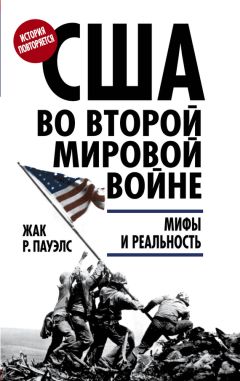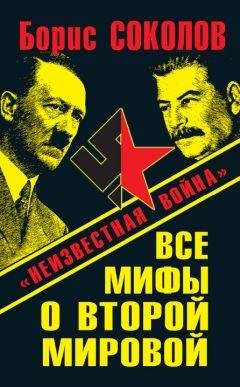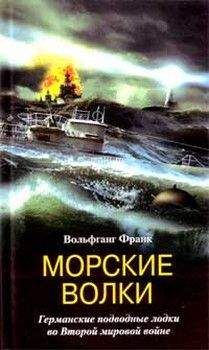Жак Р. Пауэлс - США во Второй мировой войне. Мифы и реальность

Помощь проекту
США во Второй мировой войне. Мифы и реальность читать книгу онлайн
Gabriel Kolko, “American Business and Germany, 1930–1941,” The Western Political Quarterly, Vol. XV, No. 4, December 1962, pp. 713—28.
The Politics of War: The World and United States Foreign Policy, 1943–1945, New York, 1968.
Main Currents in Modern American History, New York, 1976.
Century of War: Politics, Conflicts, and Society Since 1914, New York, 1994.
Joyce and Gabriel Kolko, The Limits of Power: The World and United States Foreign Policy, 1945–1954, New York, 1972.
Clayton R. Koppes and Gregory D. Black, Hollywood Goes to War: How Politics, Profits, and Propaganda Shaped World War II Movies, New York and London, 1987.
Stefan Kühl, The Nazi Connection: Eugenics, American Racism, and German National Socialism, New York, 1994.
Judy Kutulas, The Long War: The Intellectual People’s Front and Anti-Stalinism, 1930–1940, Durham, NC, and London, 1995.
Melvyn P. Leffler, “The American Drive for Security: Marshall Plan, Revival of Germany, and NATO,” in Thomas G. Paterson and Robert J. McMahon, The Origins of the Cold War, 3rd edition, Lexington, MA, and Toronto, 1991, pp. 229–240.
A Preponderance of Power: National Security, the Truman Administration and the Cold War, Stanford, 1992.
Clement Leibovitz and Alvin Finkel, In Our Time: The Chamberlain-Hitler Collusion, New York, 1998.
Sidney Lens, Permanent War: The Militarization of America, New York, 1987.
Ralph B. Levering, American Opinion and the Russian Alliance, 1939–1945, Chapel Hill, NC, 1976.
David Lanier Lewis, The Public Image of Henry Ford: An American Folk Hero and his Company, Detroit, 1976.
Eric Lichtblau, The Nazis Next Door; How America Became A Safe Haven For Hitler’s Men, Boston and New York, 2014.
Marc Linder, in collaboration with Julius Sensat, Jr., The Anti-Samuelson.
Macroeconomics: Basic Problems of the Capitalist Economy, 2 volumes, New York, 1977.
Richard R. Lingeman, Don’t You Know There’s a War on?: The American Home Front,1941–1945, New York, 1970.
Susan J. Linz (ed.), The Impact of World War II on the Soviet Union, Towota, NJ, 1985.
James W. Loewen, Lies My Teacher Told Me: Everything Your American History Textbook Got Wrong, New York, 1995.
Wilfried Loth, The Division of the World 1941–1955, London, 1988.
Callum A. MacDonald, “The United States, Appeasement and the Open Door,” in Wolfgang J. Mommsen and Lothar Kettenacker (eds.), The Fascist Challenge and the Policy of Appeasement, London, 1983, pp. 400—12.
Robert James Maddox, From War to Cold War: The Education of Harry S. Truman, Boulder, CO, 1988.
The United States and World War II, Boulder, CO, 1992.
Thomas R. Maddux, “Watching Stalin Maneuver Between Hitler and the West: American Diplomats and Soviet Diplomacy, 1934–1939,” Diplomatic History, Vol. 1, No. 2, Spring 1977, pp. 140—54.
Years of Estrangement: American Relations with the Soviet Union, 1933–1941, Tallahassee, FL, 1980.
Charles S. Maier, “Why the Allies Did It,” Harvard Magazine, Vol. 87, No. 4, March-April 1985.
Eduard Mark, “October or Thermidor? Interpretations of Stalinism and the Perception of Soviet Foreign Policy in the United States, 1927–1947,” American
Historical Review, Vol. 94, No. 4, October 1989, pp. 937—62.
Leon Martel, Lend-Lease, Loans, and the Coming of the Cold War: A Study of the Implementation of Foreign Policy, Boulder, CO, 1979.
Arthur Marwick, Class: Image and Reality in Britain, France and the USA since 1930, New York, 1980.
David Mayers, The Ambassadors and America’s Soviet Policy, New York and Oxford, 1995.
Laurence W. Mazzeno, “Getting the Word to Willie and Joe,” Military Review, Vol.
LXVII, No. 8, August 1987, pp. 69–82.
Thomas J. McCormick, America’s Half-Century: United States Foreign Policy in the Cold War, Baltimore and London, 1989.
Alexander McKee, Dresden 1945: The Devil’s Tinderbox, London, 1982.
Henry Cord Meyer, Five Images of Germany: Half a Century of American Views on German History, Washington, 1960.
James V. Milano and Patrick Brogan, Soldiers, Spies and the Rat Line: America’s Undeclared War Against the Soviets, Washington and London, 1995.
James R. Millar, “Conclusion: Impact and Aftermath of World War II,” in Susan J. Linz (ed.), The Impact of World War II on the Soviet Union, Towota, NJ, 1985, pp. 283—91.
The Soviet Economic Experiment, Urbana, IL, 1990.
C. Wright Mills, The Power Elite, New York, 1956.
Robert K. Murray, Red Scare: A Study of National Hysteria, 1919–1920, New York, 1964.
Williamson Murray and Allan R. Millet (eds.), Military Innovation in the Interwar Years, Cambridge, 1996.
Derek Nelson, The Posters That Won The War, Osceola, WI, 1991.
“No Canadian Scandal,” letter published in The Globe and Mail, Toronto, October 4, 1997.
David W. Noble, David A. Horowitz, and Peter N. Carroll, Twentieth Century Limited: A History of Recent America, Boston, 1980.
Arnold A. Offner, American Appeasement: United States Foreign Policy and Germany, 1933–1938, Cambridge, MA, 1969.
“American Appeasement, 1933–1938,” in Arnold Offner (ed.), America and the Origins of World War II, 1933–1941, Boston, 1971, pp. 54–76.
“The United States and National Socialist Germany,” in Wolfgang J.
Mommsen and Lothar Kettenacker (eds.), The Fascist Challenge and the Policy of Appeasement, London, 1983, pp. 413—27.
“Harry S Truman as Parochial Nationalist,” in Thomas G. Paterson and
Robert J. McMahon (eds.), The Origins of the Cold War, 3rd edition, Lexington, MA, and Toronto, 1991, pp. 49–60.
David O’Keefe, One Day in August: The Untold Story behind Canada’s Tragedy at Dieppe, Toronto, 2013.
Mancur Olson, The Logic of Collective Action: Public Goods and the Theory of Interest Groups, Cambridge, MA, and London, 1965.
William L. O’Neill, A Democracy at War: America’s Fight at Home and Abroad in World War II, New York, 1993.
Torsten Oppelland, “Der lange Weg in den Krieg (1900–1918),” in Klaus Larres and Torsten Oppelland (ed.), Deutschland und die USA im 20. Jahrhundert:
Geschichte der politischen Beziehungen, Darmstadt, 1997, pp. 1—30.
Richard Overy, Why the Allies Won, London, 1995.
Russia’s War, London, 1997.
Michael Parenti, The Anti-Communist Impulse, New York, 1969.
Power and the Powerless, New York, 1978.
The Sword and the Dollar: Imperialism, Revolution, and the Arms Race, New York, 1989.
Against Empire, San Francisco, 1995 (1995a).
Democracy for the Few, 6th edition, New York, 1995 (1995b).
Dirty Truths: Reflections on Politics, Media, Ideology, Conspiracy, Ethnic Life and Class Power, San Francisco, 1996.
Blackshirts and Reds: Rational Fascism and the Overthrow of Communism, San Francisco, 1997.
History as Mystery, San Francisco, 1999.
Thomas G. Paterson, “Exaggerations of the Soviet Threat,” in Thomas G. Paterson and Robert J. McMahon (eds.), The Origins of the Cold War, 3rd edition, Lexington, MA, and Toronto, 1991, pp. 203—12.
Thomas G. Paterson, J. Garry Clifford, and Kenneth J. Hagan, American Foreign Policy: A History / 1900 to Present, Lexington, MA, and Toronto, 1991.
Jacques R. Pauwels, “Hitler’s Failed Blitzkrieg against the Soviet Union. The ‘Battle of Moscow’ and Stalingrad: Turning Point of World War II,” Global Research, December 6, 2011, globalresearch.ca/index.php?context=va&aid=28059.
Big business avec Hitler, Brussels, 2013.
De Groote Klassenoorlog 1914–1918, Berchem, 2014.
Mark Pendergrast, For God, Country, and Coca-Cola: The Unauthorized History of the Great American Soft Drink and the Company That Makes It, New York, 1993.
Clive Ponting, Armageddon: The Second World War, London, 1995.
Walter S. Poole, “From Conciliation to Containment: The Joint Chiefs of Staff and the Coming of the Cold War, 1945–1946,” Military Affairs, Vol. XLII, No. 1, February 1978, pp. 12–15.
Robert C. Puth, American Economic History, 2nd edition, Fort Worth, TX, 1988.
Simon Reich, The Fruits of Fascism: Postwar Prosperity in Historical Perspective, Ithaca, NY, and London, 1990.
“The Ford Motor Company and the Third Reich,” Dimensions: A Journal of Holocaust Studies, Vol. 13, No. 2, December 1999, pp. 15–17.
Simon Reich and Lawrence Dowler, Research Findings About Ford-Werke Under the Nazi Regime, Dearborn, MI, 2001.
David Reynolds, Rich Relations: The American Occupation of Britain, 1942–1945, New York, 1995.
David Reynolds, Warren F. Kimball, and A. O. Chubarian (eds.), Allies at War: The Soviet, American, and British Experience, 1939–1945, New York, 1994.
Geoffrey Roberts, Stalin’s Wars from World War to Cold War, 1939–1953, New Haven, CT, and London, 2006.
George H. Roeder, Jr., The Censored War: American Visual Experience during World War Two, New Haven, CT, and London, 1993.
Steven T. Ross, American War Plans 1941–1945: The Test of Battle, London and Portland, OR, 1997.
Mario Rossi, “United States Military Authorities and Free France, 1942–1944,” The Journal of Military History, Vol. 61, No. 1, January 1997, pp. 49–64.
Floyd Rudmin, “Secret War Plans and the Malady of American Militarism,”
Counterpunch, 13:1, February 17–19, 2006, pp. 4–6, www.counterpunch.org/2006/02/17/secret-war-plans-and-the-malady-of-american-militarism.
Keith Sainsbury, Churchill and Roosevelt at War: The War They Fought and the Peace They Hoped to Make, New York, 1994.
Anthony Sampson, The Sovereign State of ITT, New York, 1973.
The Seven Sisters: The Great Oil Companies and the World They Made, New York, 1975.
Michael Sayers and Albert E. Kahn, The Plot against the Peace: A Warning to the Nation! New York, 1945.
Ronald Schaffer, “American Military Ethics in World War II: The Bombing of German Civilians,” The Journal of Military History, Vol. 67, No. 2, September 1980, pp. 318—34.
David F. Schmitz, “‘A Fine Young Revolution’: The United States and the Fascist Revolution in Italy, 1919–1925,” Radical History Review, No. 33, September 1985, pp. 117—38.
Thank God They’re on Our Side: The United States and Right-Wing Dictatorships, 1921–1965, Chapel Hill, NC, and London, 1999.
Michael S. Sherry, The Rise of American Air Power: The Creation of Armageddon, New Haven, CT, and London, 1987.
In the Shadow of War: The United States Since the 1930s, New Haven, CT, and London, 1995.
Michael S. Shull and David E. Wilt, Doing Their Bit: Wartime American Animated Short Films, 1939–1945, Jefferson, NC, and London, 1987.
Ken Silverstein, “Ford and the Führer,” The Nation, January 24, 2000, pp. 11–16.
Christopher Simpson, Blowback: The First Full Account of America’s Recruitment of Nazis, and Its Disastrous Effect on our Domestic and Foreign Policy, New York, 1988.
The Splendid Blond Beast: Money, Law, and Genocide in the Twentieth Century, New York, 1993.
Nikolai V. Sivachev and Nikolai N. Yakovlev, Russia and the United States, Chicago and London, 1979.
N. Sivachyov and E. Yazkov, History of the USA Since World War I, Moscow, 1976.
Robert M. Slusser, “Soviet Policy and the Division of Germany, 1941–1945,” in Susan J. Linz (ed.), The Impact of World War II on the Soviet Union, Towota, NJ, 1985, pp. 107—25.
Melvin Small, “How We Learned to Love the Russians: American Media and the Soviet Union During World War II,” The Historian, Vol. 36, May 1974, pp. 455–478.
“The ‘Lessons’ of the Past: Second Thoughts about World War II,” in Norman K. Risjord (ed.), Insights on American History. Vol. II, San Diego, 1988.
Arthur L. Smith, Jr., Churchill and the German Army (1945): Some Speculations on the Origins of the Cold War, Center for the Study of Armament and Disarmament, California State University, Los Angeles, 1974.
Churchill’s German Army: Wartime Strategy and Cold War Politics, 1943–1947, Beverly Hills, CA, 1977.
Bradford Snell, “GM and the Nazis,” Ramparts, Vol. 12, No. 11, June 1974, pp. 14–16.
Robert Sobel, ITT: The Management of Opportunity, New York, 1982.
Richard W. Steele, “‘The Greatest Gangster Movie Ever Filmed’: Prelude to War,”
Prologue: The Journal of the National Archives, Vol. 11, No. 4, Winter 1979, pp. 221—35.
Alexander Stephan, “Communazis”: FBI Surveillance of German Emigré Writers, New Haven, CT, and London, 2000.
Robert B. Stinnett, Day of Deceit: The Truth about FDR and Pearl Harbor, New York, 2000.
Mark A. Stoler, “The ‘Second Front’ and American Fear of Soviet Expansion, 1941–1943,” Military Affairs, Vol. XXXIX, No. 3, October 1975, pp. 136—41.
Anthony C. Sutton, Wall Street and the Rise of Hitler, Seal Beach, CA, 1976.
Frederick Taylor, Dresden: Tuesday, February 13, 1945, New York, 2005.
Studs Terkel, “The Good War”: An Oral History of World War Two, New York, 1984.
T. H. Tetens, The New Germany and the Old Nazis, London, 1962.
Robert W. Thurston, Life and Terror in Stalin’s Russia 1934–1941, New Haven, CT, and London, 1996.
Tooze, Adam. The Wages of Destruction: The Making and Breaking of the Nazi Economy, London, 2006.
Henry Ashby Turner, Jr., General Motors and the Nazis: The Struggle for Control of Opel, Europe’s Biggest Carmaker, New Haven, CT, and London, 2005.
William W. Turner, Hoover’s FBI, New York, 1993.
Harold G. Vatter, The U.S. Economy in World War II, New York, 1985.
Milton Viorst, Hostile Allies: FDR and Charles de Gaulle, New York and London, 1965.
Agostino von Hassell and Sigrid McRae, Alliance of Enemies: The Untold Story of the Secret American and German Collaboration to End World War II, New York, 2006.
Mary-Alice Waters, “1945: When US Troops Said ‘No!’: A Hidden Chapter in the Fight Against War,” New International: A Magazine of Marxist Politics and Theory, No. 7, 1991, pp. 279–300.
T. H. Watkins, The Great Depression: America in the 1930s, Boston, 1993.
Kenneth E. Weiher, America’s Search for Economic Stability: Monetary and Fiscal Policy Since 1913, New York, 1992.
Gerhard L. Weinberg, A World at Arms: A Global History of World War II, Cambridge, 1994.
Mira Wilkins, The Maturing of Multinational Enterprise: American Business Abroad from 1914 to 1970, Cambridge, MA, and London, 1974.
Mira Wilkins and Frank Ernest Hill, American Business Abroad: Ford on Six Continents, Detroit, 1964.
William Appleman Williams, The Tragedy of American Diplomacy, revised edition, New York, 1962.
“American Intervention in Russia: 1917—20,” in David Horowitz (ed.),
Containment and Revolution, Boston, 1967, pp. 26–75.
“Empire as a Way of Life,” Radical History Review, No. 50, Spring 1991, pp. 71—102.
Allan M. Winkler, The Politics of Propaganda: The Office of War Information 1942–1945, New Haven and London, 1978.
Neil A. Wynn, “The ‘Good War’: The Second World War and Postwar American Society,” The Journal of Contemporary History, Vol. 31, No. 3, July 1996, pp. 463–482.
Wyvetra B. Yeldell, Publications of the US Army Center of Military History, Washington, DC, 1997.
Mark Zepezauer and Arthur Naiman, Take the Rich Off Welfare, Tucson, AZ, 1996.
Michael Zezima, Saving Private Power: The Hidden History of the “Good War,” New York, 2000.

























